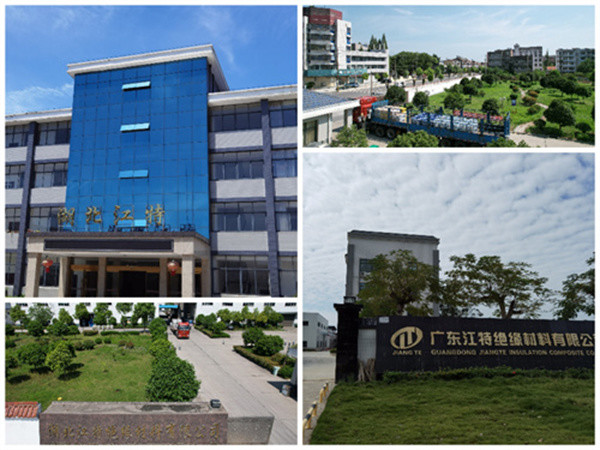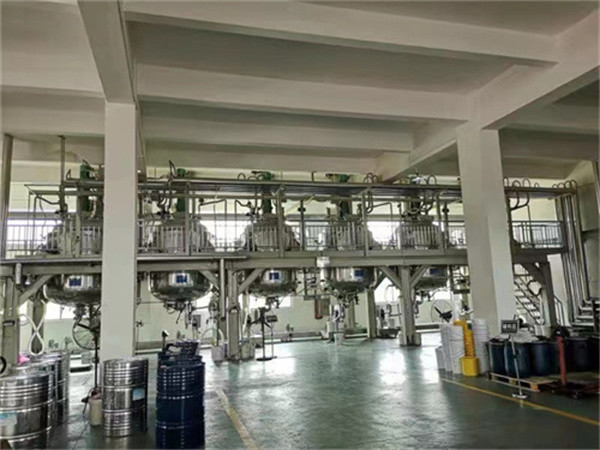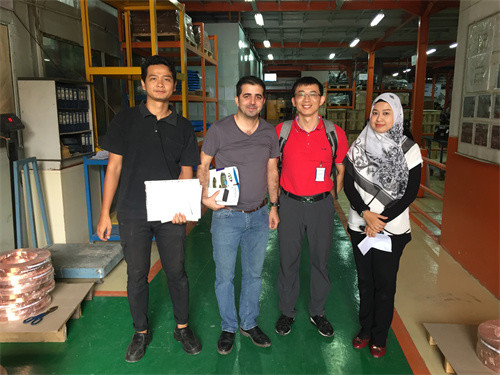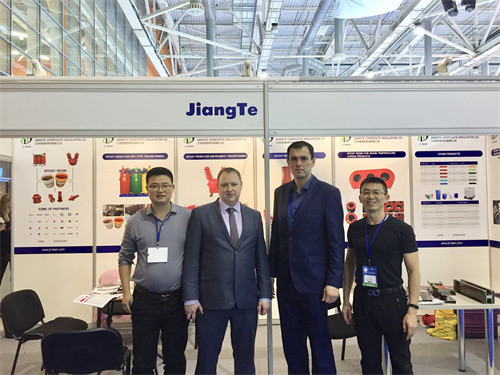jiangte insulation composite |
|
Verified Suppliers
|
|
HUBEI JT-EPOXY RESIN FOR LBS, BUSHINGS, SPOUTS, MONOBLOCK, SWITCH GEARS, EMBEDDED POLES, INSULATORS
EPOXY RESIN FOR LBS, BUSHINGS, SPOUTS, MONOBLOCK, SWITCH GEARS, EMBEDDED POLES, INSULATORS
PRODUCT DESCRIPTION:
Liquid, Latent, hot-curing cast resin system. Specially formulated for convenient in processing with excellent impregnating performance.
APPLICATIONS:
For medium and high voltage indoor electrical insulators
PROCESSING METHODS:
Automatic pressure gelation casting(APG process)
PROPERTIES:
Very low initial mixed viscosity
Excellent mechanical and electrical performance
Adjustable anti-cracking toughness and filler content
Product data(Guideline values)
JT 8053 A modified Epoxy resin
| TYPICAL VALUES |
Viscosity @ 25℃, mPa.s [ASTM D-2983] ............................................................... 5000-10,000 Non volatile component, wt% [DOWM 101188-TE]................................................................100 Density @ 25℃ , g/cm3 [ASTM D-1475] ............................................................... .....1.14- 1.17 Storage life @ 25℃ (sealed container), month ………………………………………………….12 |
Remark:In order to prevent the absorption of moisture,please keep epoxy resin in sealed container
and storage under normal temperature (about 20 to 25℃)
JT 8053 B Modified liquid hardener
| TYPICAL VALUES |
Viscosity @ 25℃, mPa.s [ASTM D-2983] ................................................................. 300-500 Vapour Pressure @ 25℃, mbar ...................................................................................... 1 - 2 Density @ 20℃ , g/cm3 [ASTM D-1475] ............................................................... 1.18 - 1.22 Storage life @ 25℃ (sealed container), month ………………………………………………… 12 |
Remark:
JT 8053 B contains accelerator. Prolonged storage at high ambient temperatures results in an undesirable increase in its viscosity and impairs the reactivity of the Casting Resin system. JT 8053 B is sensitive to moisture. Partly emptied containers must be resealed immediately.
Processing(guideline values)
System Preparation
General instructions for preparing liquid resin systems
Mix all of the components together very thoroughly (the mixture temperature will be reached at or about 60°C. If lower mix viscosity is expected, preheat resin at higher temperature but not exceed 80°C) under vacuum.
Proper mixing will result in:
- Better flow properties and reduced tendency to shrinkage
- Lower internal stresses and therefore improved mechanical properties on object
- Improved partial discharge behaviour in high voltage applications.
For the mixing of medium to high viscosity Casting resin systems and for mixing at lower temperatures, it is recommended special thin film degassing mixers that may produce additional self-heating of 10-15°C as a result of friction. For low viscous casting resin systems, conventional anchor mixers are usually sufficient.
In larger plants, two pre-mixers are used to mix the individual components (resin, hardener) under vacuum. Metering pumps then feed these premixes to the final mixer or a continuous mixer. The individual premix can be stored at elevated temperature (about 60°C) for up to about 1 week, depending on formulation. Intermittent agitation during storage is advisable to prevent filler sedimentation.
Mixing time can vary from 0.5 to 3 hours, depending on mixing temperature, quantity, mixing equipment and the particular application. The required vacuum is 0.5 to 8 mbar. The vapour pressure of the individual components should be taken into account.
Specific Instructions
Dilute leftover mix at the end of a shift with the resin component prior to storage overnight or over the weekend. Piping containing prefilled components or casting mixes should be cooled immediately after work to prevent sedimentation and/or undesired viscosity increases. This helps minimize material losses and cleaning work.
Mould temperature
APG process 130 - 160°C
Conventional vacuum casting 70 - 100°C
Demoulding times (depending on mould temperature and casting volume)
APG process 10 - 40 min
Conventional vacuum casting 5 - 8h
Cure conditions
APG process (minimal postcure) 4h at 130°C or 3h at 140°C
Conventional vacuum casting 12h at 130°C or 8h at 140°C
To determine whether crosslinking has been carried to completion and the final proper-ties are optimal, it is necessary to carry out relevant measurements on the actual object or to measure the glass transition temperature. Different gel and postcuring cycles in the manufacturing process could influence the crosslinking and the glass transition temperature respectively.
Hubei Plant and Guangdong Plant:

Factory equipment:

Test Equipment:

Part of our customers:


Storage:
The components have to be stored under dry conditions at 5 - 25℃, in tightly sealed original containers. Under these conditions, the shelf life will correspond to the expiry date stated on the label. After this date, the product may be processed only following reanalysis. Partly emptied containers should be closed tightly immediately after use.
For information on waste disposal and hazardous products of decomposition in the event of fire, refer to the Material Safety Data Sheets (MSDS) for these particular products.
FAQ:
1. What’s the Pre-filled?
Pre-filled is the resin or hardener has been filled with silica sands before delivering to you.
2. Is Pre-filled resin cheaper than Pure resin?
Generally it is. However, you should consider the final cost. If you can find qualified silica sands in you local market, the pure resin is better choice. Silica sands are very cheap, sea freight cost is high. With same quantity of resin in a shipment, you can get more final mixed resin with local silica sands.
3. Why JiangTe resin doesn’t offer Flexibilizer and Accelerator?
We’ve added them into resin/hardener already before delivering to you. So you can use our materials easily